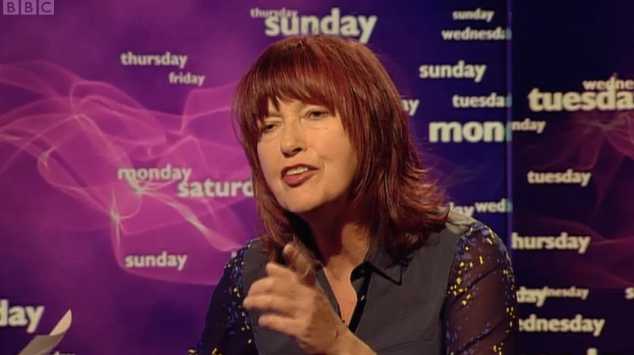 I was writing a few days ago about the recent survey that revealed that the people who do not have a religious belief in the UK are now up to 48.5% and so outnumber the biggest religious belief, Christianity, which is only 44%. As you might anticipate, some who are religious are a tad upset about this new revelation, and perhaps one potential example is Janet Street-Porter, editor-at-large of the Independent on Sunday.
I was writing a few days ago about the recent survey that revealed that the people who do not have a religious belief in the UK are now up to 48.5% and so outnumber the biggest religious belief, Christianity, which is only 44%. As you might anticipate, some who are religious are a tad upset about this new revelation, and perhaps one potential example is Janet Street-Porter, editor-at-large of the Independent on Sunday.
She believes, and if that is what she needs/wants then that is fine …
I believe in the power of prayer and have done since childhood, attending an Anglican primary and secondary school in a working class area where Catholics had their own, parallel system.
These days, people are astonished to discover I believe in God. It’s like admitting you have a huge boil on your bum or you slept with the postman last Christmas.
Rather oddly she also claims …
Most Brits are secret believers: they have faith but just don’t want to admit it.
… and yet she has no real basis for actually declaring that this is true.
However, what may indeed explain this stance is that that her variation of belief is not exactly traditional Christianity as you might think of it within a UK context and so she does have some wholly justified criticism of the more traditional C of E …
… I find the Anglican Church is a source of never-ending despair, with its lacklustre attitude to promoting women, embracing sexual equality and gay marriage, years of ignoring historic sex abuse, and so on.
… My belief doesn’t rely on attending church or agreeing with Archbishops, or any kind of communal activity or Synod-approved ruling.
… I can’t understand why the church doesn’t use its property portfolio and vast wealth to support the poor, instead of always asking everyone else to cough up. Churches must be the most underused property in Britain; they should be turned into affordable housing, for starters.
… Christianity, which means reaching out to others.
This is all very much at odds with what we might term classical or traditional Christianity and might perhaps fit the label Christianity-lite.
So why am I writing about her article?
Wel, the point is this; while she might indeed feel that most Brits really do believe in secret, and so the claim that 48.5% don’t is wrong, she herself and her article do in fact confirm that the 48.5% statistic is most probably correct.
Quite clearly she herself has rejected the traditional form of belief and does not attend religious services, nor does she feel that the course that the C of E is steering itself upon is right for them, for us, or for the UK.
What the survey itself tells us is that as a culture we are putting away the toys of our cultural Childhood, growing up, and starting to take responsibility for ourselves instead of blaming or appealing to the ever so psychologically enticing parent-in-the-sky fantasy.
Incidentally, one last gentle dig. Chapter 4 of the survey revealed that most of those that do still believe are over 65. That is perhaps understandable, because when you have invested your time and energy for many many decades in a belief, then it is quite challenging to come to terms with the fact that you have been wasting your one unique life on nonsense. It would not perhaps be polite to tell you Janet Street-Porter’s precise age, but I will reveal that she is indeed over 65, hence letting go of a lifetime of believing is indeed quite challenging, and yet clearly she is already well down that road and has already ditched vast swathes of it.
Belief is not a binary on/off switch and for many, including myself, you find that instead you slowly slowly let go of it bit by bit. This is perhaps akin to a deep sea diver slowly rising to the surface decompressing, and so what happens is that suddenly one day you break surface and find to your complete astonishment that you don’t actually believe anymore. 48.5% have now done that, and clearly others within the remaining percentage such as Janet Street-Porter are on that same trip and are already rising to the surface.
I can only wish her well on that journey.